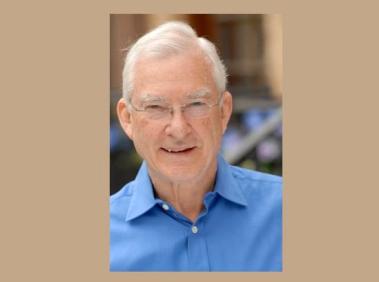Star Trek: J.J. Abrams Is a Neuroscientist - Charlie Warner - MediaBizBlogger

Star Trek: The Future Begins, conceived and stunningly directed by J.J. Abrams and written by Robert Orci and Alex Kurtzman, is an appropriate, much-needed myth for a new 21st century generation that brilliantly weaves the latest discoveries of neuroscience, psychology, and behavioral economics into the story.
For centuries Grimm's fairy tales hid moral messages in simple stories that told children how to make decisions about life. Twentieth century children needed the more engaging medium of film to hold their ever more diverted attention, but the same messages were still being transmitted about how to make decisions – be kind to little people, don't kill animals, don't lie, don't be mean to your step-siblings, don't fall for a wolf's sweet talking, etc.
Ever since Plato, the Greeks, the Romans, and Middle Age religious institutions, the prevailing wisdom was that the mind was divided in two – the rational mind and the emotional mind – and that children had to be taught to use their reason to overcome their baser emotional instincts. The message was, stop and think before you act. And, oh, by the way, we'll tell you how to think.
Rational man was the ideal. Descartes articulated it best with, "I think, therefore I am." The notion was that what made man superior to animals was his ability to reason. The poet William Blake romanticized this concept by writing that man was the only animal who had the ability to laugh; God gave man laughter as a consolation prize because man was the only animal with reason, and could thus figure out he was eventually going to die.
The theory of rational man gave birth to the theory of economic man – a person who makes considered, rational, and self-interested decisions. The theory also gave birth to the notion of rational markets. If people were rational, then their economic decisions must be rational and self-interested and, therefore, the markets they create must be rational.
However, over the last 30 years, the extensive and ground-breaking research of neuroscientists, psychologists, and behavioral economists has shown that people do not make purely rational decisions, that the theory of economic man is hogwash, and that the free-market system is totally irrational – influenced by randomness, not rationality.
What the body of neuroscientific, psychological, and behavioral economic research indicates is that people make decisions based on a highly complex interaction between the rational and emotional parts of the brain, as superbly chronicled by Jonah Lehrer in How We Decide – a must read for anyone who liked Taleb's The Black Swan or Fooled by Randomness -- and Lehrer's dazzling Proust Was a Neuroscientist
The message of J.J. Abrams, Robert Orci, and Alex Kurtzman's Star Trek is in perfect harmony with Lehrer's How We Decide. Near the beginning of the movie, a young 9-year-old James Kirk speeds down an Iowa dirt road in a vintage Mustang that he's taken from his uncle and makes a miraculous recovery based on intuition before the car plummets into a deep canyon – he's obviously a rash young risk taker who makes intuitive decisions. We know who Kirk is. We next see him as a handsome, angry, emotional, fearless, risk-taking teenager who rashly gets into a fight. We really know who Kirk is.
We see Spock being trained as a child in pure reason – no emotion, no risk taking – all math, science, and logic. He has a touch of emotion because his mother is human, not a Vulcan, but he is taught to repress unwanted emotion and depend on reason and logic.
Spock becomes the captain of the Enterprise and has to make a crucial decision. Kirk's intuition tells him Spock's decision is wrong and they fight, after which Kirk is banished. However, in a dramatic, whiz-bang, climatic rescue scene Kirk and Spock work and fight together, win the day, and win the battle against the evil, revenge-driven Nero.
The moral of the story? The risk-taking, emotional, intuitive Kirk and the logical, rational, conservative Spock need each other. They are two integral parts of a complex, effective decision-making system. In the end, the intuitive Kirk takes command of the Enterprise, with Spock his rational second in command at his side to advise him. The Enterprise and its crew boldly go off to fulfill man's ultimate purpose – to explore.
What is the engine for our evolution? Curiosity (exploration), for without it we'd still be amoebas. But to explore, we need to take risks, use our intuition, and, when appropriate, think things out – use both sides of our brains.
J.J. Abrams along with Robert Orci and Alex Kurtzman are neuroscientists and behavioral economists masquerading as filmmakers who make their point by telling a whopper of a story, or visa versa. But we learn an important lesson for the 21st century through their incredible magic box, as defined in this J.J. Abrams TED video.
Until he retired in 2002, Charlie Warner was Vice President of AOL's Interactive Marketing division. Before joining AOL, he was the Goldenson Endowed Professor at the Missouri Journalism School where he taught media management and sales, and he created and ran the annual Management Seminar for News Executives. Charlie can be contacted at charleshwarner@gmail.com.
Read all Charlie’s MediaBizBlogger commentaries at Charlie Warner - MediaBizBlogger.

